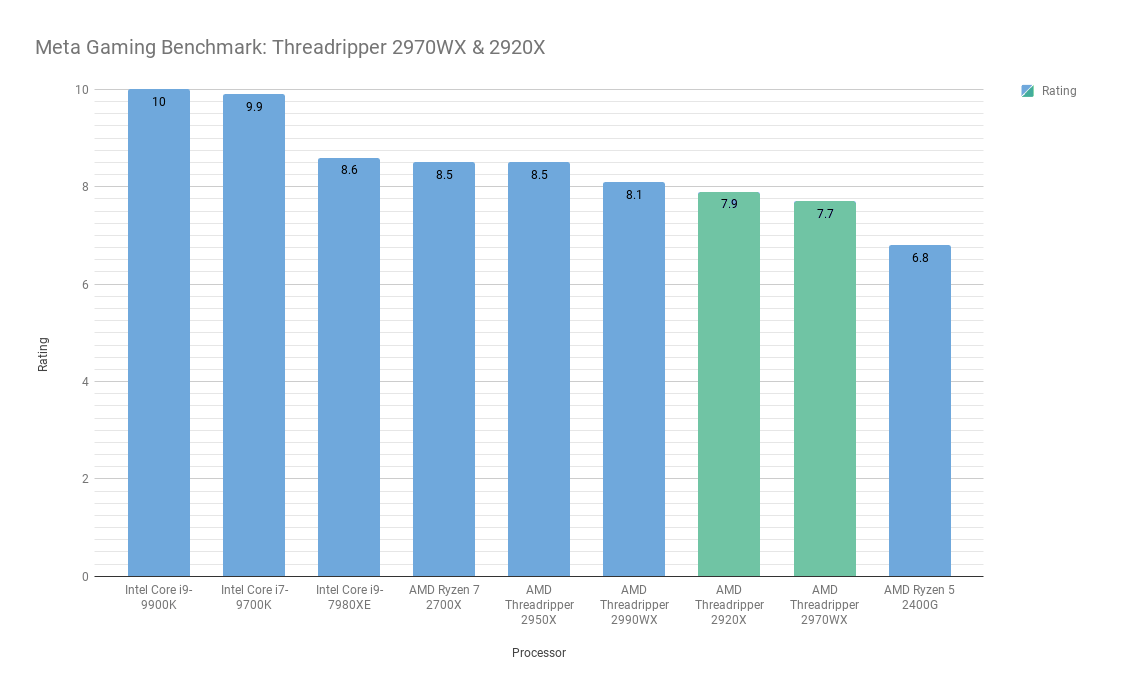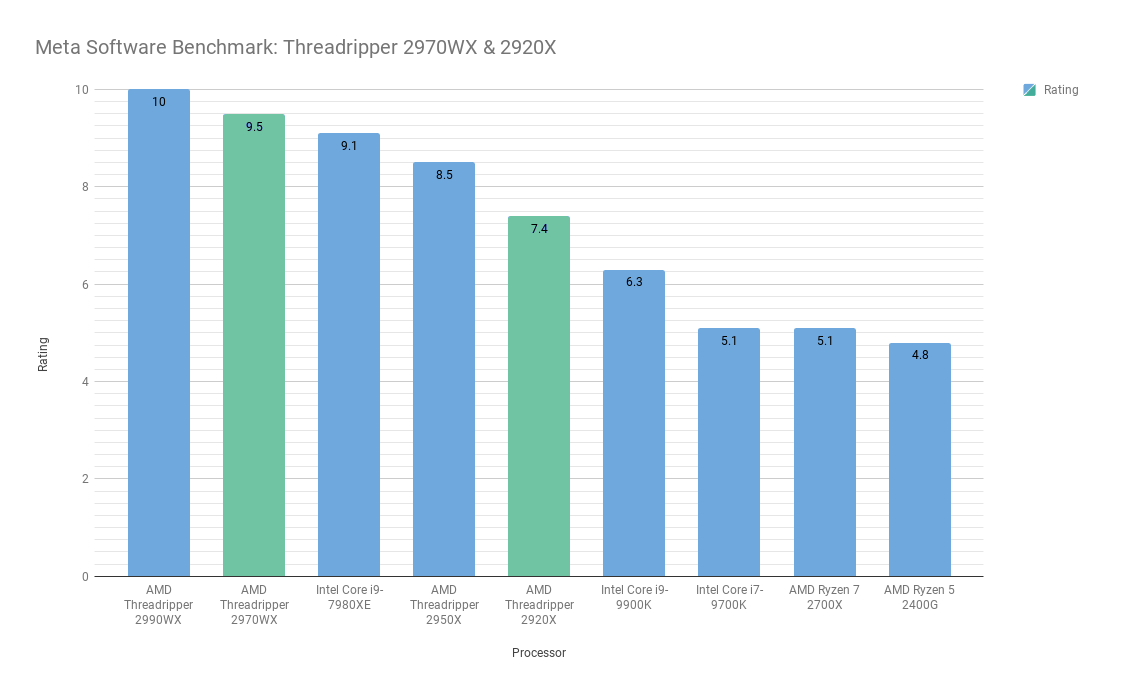AMD’s second release of Threadripper 2 processors always looked promising. The earlier Threadripper 2990WX and 2950X worked well as high core count processors, but were on the more extreme end of price and performance. Especially the expensive 2990WX was problematic, as it could only shine in some very specific situations. Now the cheaper alternatives got released and might be more convincing by just being less extreme:
- The Threadripper 2970WX, with 24 cores and 48 threads, currently at $1299.
- The Threadripper 2920X, with 12 cores and 24 threads, currently at $649.
The boost clock is at 4.3GHz for the 2920X, and at 4.2GHz for the 2970WX. They are as such slightly smaller versions of the 2990WX (32 cores, 64 thread) and the 2950X (16 cores, 32 threads).
This release was all about balance. Would the two new processors find the right balance between price and core count, and be suited for a broad range of application as well as games? That is something especially the 2990WX failed to deliver, having too many cores for games and other applications that focus on single thread performance.
For gaming the new Threadripper processors show a surprising performance:
To see exactly which benchmarks were used, check the comparison page.
The surprising result here is the placement below the more expensive processors. I fully expected the new versions to be faster in games, as having less cores is advantageous in most games. This shows how well the gaming modes work, and how well the higher turbo clock of the 2950X gets applied.
As it is, the strongest Threadripper 2 for games is the 2950X, presumably because of its high turbo clock. But it still is not faster than the Ryen 7 2700X. The 2990WX follows. The new 2920X is faster than the new 2970WX, as to be expected from their turbo clock. We can see that a regular quad core like the Ryzen 5 2400G is not much slower - and that processor costs around 10% of the 2970WX. The small differences between between the Threadripper models make the most reasonable Threadripper 2 for gaming the cheapest, which is the 2920X.
In other words: Gaming is just not Threadripper’s strong suit, the way cheaper Ryzen 7 2700X remains AMD’s fastest gaming processor.
The result also shows the strong position of Intel. Intel’s processors are just faster in games, even Intel’s high core count i9-7980XE is placed above the Threadripper family. But the i9-9900K and the i7-9700K are even better in games, with the i9-9900K being the strongest gaming processor in the whole benchmark.
Software workloads are a different story:
To see exactly which benchmarks were used, check again the comparison page.
As said in the review of Intel’s 9000 series: Software performance differs a lot, and there are areas where single thread performance matters more. In software relying on memory latency or single core speed the results will be closer to the gaming benchmark above. That said, let’s look at the results in this benchmark.
The 2990WX sits at the top, the 2970X can get the second position. And while the i9-7980XE is faster than the remaining Threadrippers it is also a lot more expensive, giving AMD a clear lead in software performance. Even the very high clock of the i9-9900X is not enough to beat the slowest new Threadripper, the 2920X.
The 2950X reaches a strong placement as well, it is a good option when running software that does not scale that well with many cores. The same could be said about the 2920X, but that processor has the additional advantage of being cheaper - the small difference between that model and the i9-9900K make it an attractive option for those that focus less on gaming performance, but who want more multi-thread performance than a regular consumer processor can offer. Of those the Ryzen 7 2700X has the usual strong price-performance.
It was to be expected that Threadripper 2 would not solve all issues of the Treadripper series. And indeed, the core problem (pun intended) remains: Those are expensive processors that only impress in some multi-threaded workloads. But AMD managed to up the core count without reducing gaming performance, that way staying close to the gaming performance of a good Ryzen processor. Which also means gaming performance is worse than with Intel. And that it is absolutely good enough.
But no one buys a Threadripper for gaming. And right: In application workloads Threadripper 2 beats Intel’s offerings, even the expensive high core count option that is the i9-7980XE. That this also holds true for the clearly cheaper 2970WX is a very good result for AMD.

